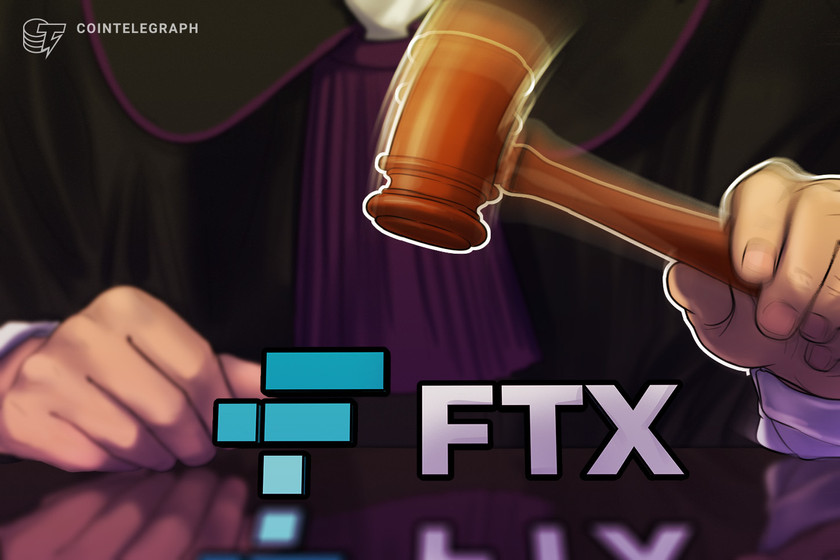Crypto in Europe: Economist breaks down MiCA and future of stablecoins


A principal economist of the European Commission shares his views on stablecoins and the future of regulations in Europe.
In October 2022, the European Union finalized the text of its regulatory framework called Markets in Crypto-Assets or MiCA. The final vote on the new regulation is scheduled for April 19, 2023, meaning the days of an unregulated crypto market in the EU may soon be over. The MiCA regulations introduce clear guidelines for handling cryptocurrencies and consumer protection, and divide crypto assets into different sectors, each subject to specific rules.
The European Commission — the executive branch of the EU responsible for proposing new laws — first proposed the far-reaching regulations in 2020. The MiCA would apply to crypto service providers and issuers of digital assets in 27 EU member countries. By proposing to regulate crypto assets, the European Commission has taken a bold step, displaying the capacity and will to address complex issues creatively.
Joachim Schwerin is the principal economist at the Digital Transformation of Industry unit within the European Commission’s Directorate General for the Internal Market, Industry, Entrepreneurship and SMEs (DG GROW).
Schwerin is responsible for policy development regarding various aspects of token creation, its distribution and regulation (token economy), and the economic applications of distributed ledger technologies.
In 2020, Schwerin coordinated DG GROW’s input into the EU’s Digital Finance Strategy, including MiCA. Speaking to Cointelegraph, Schwerin shared his views on the importance of MiCA, the role of stablecoins, and why he hasn’t ever questioned the merits of blockchain and crypto, even in the wake of Terra’s collapse or the FTX crash.
“We want to develop and promote, not slow down”
With MiCA, the European Commission has adopted a regulatory framework that should minimize the negative consequences of incidents like the insolvencies of FTX and BlockFi in the future. The law was not in force at the time of the FTX case, but Schwerin hopes it will come as soon as possible, saying this should “clearly underpin the precautionary principle.”
“We promote the crypto sector and want to support its organic, market-driven development. The many positive opportunities should be recognized and used. It is like in sports here: Defending can make sense in certain phases of the game, but mostly defending means that a team is too bad to take the game into its own hands. We want to develop and promote, not slow down.”
For Schwerin, FTX was a typical case of an emerging and relatively unregulated industry finding its footing and developing its products and services. Indeed, he stated incidents like FTX and Terra’s collapse provided a chance for the cryptocurrency community to rally, condemn illicit behaviors and work to rebuild the industry’s reputation.
Joachim Schwerin, from @EU_Growth, illustrated his presentation with examples of healthcare institutions which use #Blockchain to manage their supply chains or to access research and data.#ECNCrowdCon2019 pic.twitter.com/UcpCQN9Ca9
— EURADA (@Eurada_RDAs) October 25, 2019
The crypto community is now focusing even more on better rule-setting and compliance in regulated or soon-to-be-regulated environments. It’s also looking more at truly decentralized mechanisms to reduce the potential for error by empowered individuals, Schwering added.
“All of this is positive and does not change the narrative of crypto as a success story with much more future potential.”
Blockchain as a philosophy
Schwerin sees the benefit of blockchain technology primarily in applications for the real economy. He said that Bitcoin (BTC) and other cryptocurrencies are “nice and fascinating with lasting significance,” but these are private concepts and “we don’t need to spend public resources on them.”
Schwerin is confident that the benefits for small businesses and the general population must be evident if the government will tackle something with public resources. And this is precisely the potential that blockchain has:
“That’s why, from the beginning, we didn’t see blockchain primarily as a technology but as a philosophy. [We saw it] as something that enables a true form of decentralization that creates trust; trustworthy technology that also opens up market opportunities for small businesses worldwide and allows many people with the same interests — but who don’t know each other — to come together digitally in the real world and develop projects.”
Recent: First of many? How Italy’s ChatGPT ban could trigger a wave of AI regulation
The European Commission had this understanding of blockchain technology in mind when discussing dubious initial coin offerings from 2017 to 2018, or that money laundering was supposedly easier with crypto.
But European regulators understood that blockchain technology’s nature — thanks to its transparency and traceability — makes it much easier to track crypto transactions, and distinguish between regular and illicit activities on-chain.
According to Schwerin, financial crime related to cryptocurrencies is much lower than in traditional forms of finance.
“That is why we did not depend on any examples of criminality or the Terra case, just as we did not depend on FTX or any next case of that sort, but we were and are 100% convinced of the technology. We got involved with it early on, and because of that, we had already learned so much by then that we were in a position to work on the MiCA regulation in record time.”
But what about stablecoins?
After the collapse of the Terra ecosystem, the European Central Bank (ECB) issued a report claiming that stablecoins posed a threat to financial stability, but Schwerin does not share this view.
According to him, society needs stablecoins in many different forms because they have important functions within the crypto space, like cushioning price fluctuations and facilitating transactions; this is why the European Commission has allowed stablecoins in principle in the MiCA regulation.
“We have not banned anything, but we have developed basic rules for private stablecoin issuers that we think are reasonable. For example, they must have appropriate minimum liquidity as a reserve”.
Regarding Terra, Schwerin sees the whole thing as a learning process, saying, “The next similar project will simply be better because people have already had this experience. It is a natural evolution of innovation.”
Despite this, there are doubts about whether stablecoins will find a home in the EU. The largest stablecoins — Tether (USDT) and USD Coin (USDC) — are pegged to the United States dollar, with Circle’s euro-pegged stablecoin also issued outside the eurozone. When MiCA comes into force, should we expect more euro stablecoins?
Schwerin hasn’t ruled out the emergence of new euro stablecoins in the EU, but he isn’t expectant either. He says that the macroeconomic context, geopolitics, monetary policy and the euro are simply not moving in that direction.
The MiCA alone is unlikely to significantly increase the number of euro-denominated stablecoins in the euro area, Schwerin stated. “However, MiCA could help us to become more open to stablecoins as a whole.”
When asked whether MiCA could become a ground-breaking global regulatory standard, Schwerin said he sees great interest from other countries, especially the United States. In his view, MiCA is a particularly good example of a regulatory approach that is both innovative and liberal for global regulation of the financial sector.
“However, even though MiCA is ready, we have to be aware of the pace of innovation in the crypto sector and the new challenges it will bring. It was, is and continues to be a long process of learning.”
The views expressed in this interview are those of Schwerin personally and do not reflect or represent the official position of the European Commission.
























